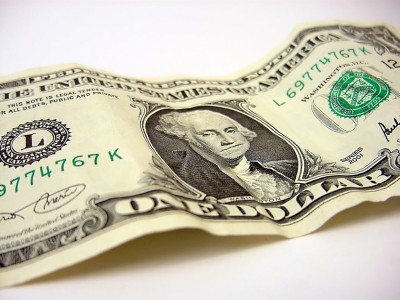A New York Times story today reports what many have already assumed: New York students’ remarkable test score gains over the past few years were due in large part to the fact that the tests were getting easier, not that the students were necessarily learning more. The story is a reminder of one of the fundamental flaws in the No Child Left Behind law that the Obama administration is now trying to fix – the incentive structure. Under NCLB, schools were punished if they didn’t make constant and steady improvement on state tests, so states had an incentive to make tests easier and easier.
How to get it right this time remains an open question, however. Underlying the current efforts is the assumption that people will do the right thing if given the right incentives, and that we just have to find the ones that will motivate everyone from state politicians to teachers to improve the delivery of public education, particularly to the most disadvantaged kids. Gold stars may motivate five-year-olds, but grown-ups need something a little heftier.
Avoiding shame was the main incentive offered by the Bush administration: it was assumed that school leaders and teachers would want to avoid the “failure” label. Unfortunately, wanting to avoid being labeled a failure isn’t the same thing as wanting to improve public education, as we saw in places where tests appear to have been dumbed down.
The incentive favored by the Obama administration — along with allies in New York City, Denver, Chicago and elsewhere — is money. The Race to the Top competition is the most obvious example, but the philosophy that money will entice people to improve also underlies other popular reform movements right now, including the campaign to implement teacher merit pay and Roland Fryer’s experiments with paying students to perform better.
The question now is whether wanting to earn more money for improving student achievement is linked with actually improving student learning. So far, the results are mixed when it comes to students and teachers; we’ll have to wait and see whether the billions poured into states that win round two of Race to the Top do the trick. Supporters argue that already, the monetary incentives in the competition have induced lawmakers to change state laws in favor of reforms like increasing the number of charter schools.
Teachers unions like to point out that teachers don’t go into the profession for the cash — although obviously one of the main goals of unions is to get them more of it. Rather, they are drawn to the job by altruism, the summers off, the joys of teaching, and other less quantifiable enticements. The same is true of educators who are higher up the rungs of the system – Joel Klein could clearly make a lot more money in the private sector, but he’s nevertheless stuck with his job at the NYC Department of Education for eight years.
And even if we were to discover an incentive, or mix of incentives, that would draw the right people into the profession and motivate them to improve throughout their career, would that be enough? Or is there more to it?




